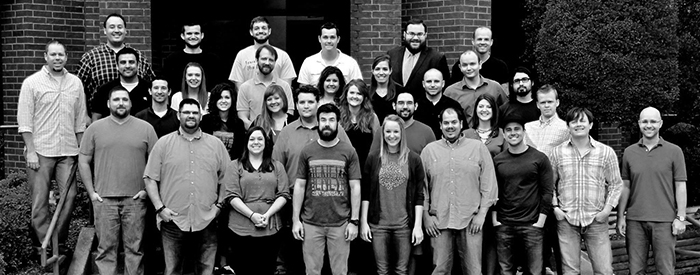 I'm sorry.
I'm sorry.
You were sold the story, hook, line, and sinker. Do this, don't do that, build it, tear it down, cover it up, write it over—do it all and then this...
This will happen for you. Or this bad thing, that won't happen for you. Obey, honor, submit, then shut your mouth, don't ask questions, don't dare defy. Do all that and it will go well for you.
And then it didn't. It didn't go well and it went really bad. Really, really bad. On the other side you stood there with nothing. No morals, no laurels, no crowns of glory, all your delight in shambles and your hope in rags. They said it would go well for you and then it didn't.
This is a letter to you, you women who grew up asking how short was too short, how obedient was obedient enough, how submission looked on you, and if every single thing you did was right enough, good enough, pure enough.
This is letter to you, you girls who grew up with mothers barefoot in the kitchen, with fathers stern and unappreciative, with every boy a threat, and every girl a comparison.
This is a letter to you, liberated woman. You came out in college roaring. You threw off the shackles of fundamentalism, of second guessing, of moralism, of theology that bound instead of freed.
This is a letter to you, freed women, ones who are looking for the voices of your sisters, the ones who know it as acutely as you do. Who know the shackles, the questions, the fears, and the injustice of growing up always looking over your shoulder.
I'm sorry.
I am so, so sorry.
I am sorry that something beautiful was perverted by an enemy who steals, kills, and destroys. I am deeply sorry that you felt damaged, a cowering bird in a coyote's world. I am so sorry that you spent your life in front of a fun-house mirror, a distortion of who you truly are. I am not your parent or your pastor, but I am you, and I am sorry.
I know you are looking for strong female voices, women who will lead the charge toward full freedom, birds who have found their flight above the heads of squabbling coyotes. I know you are looking for women who will say that yes, that was wrong, what happened to you. That, yes, the reflection you've been shown is not a true woman, a woman who fears the Lord and loves His word. That, yes, the subservient cloistered crouching woman is nothing like what a daughter of the King ought to look like.
I know you are looking for her.
And so I'm sorry, I'm sorry that I haven't spoken up. I'm sorry that in the face of one perversion, I've let another extreme pass me by without saying anything.
The enemy's favorite tactic is to pervert what is good, and there is none good, no not one. Except Him. And the wholeness of Him cannot be perverted.
Here is my promise to you, my sister, my friend: I promise you I will fight on your behalf. I promise I will fight for truth, for the culmination of all things in the Only One Who Is Good. I promise I will wrestle with theology and that I will not let go of God. That I will not let go until He has changed the names of each of us. Until we do not find our identity in a name or label, but that we find it in the fullness of Christlikeness. I cannot promise we will not walk with a limp, each one of us, but I think our limp will be our mark, our Ebenezer, our fist in the face of the enemy.
I promise to wrestle with the One who promises to lead us through to the other side.
After much prayer, counsel, and time, I've accepted an offer to join the teams of writers over at the Council on Biblical Manhood and Womanhood. Many of you are encouraged to have my voice there and I know many of you are disappointed in me. My promise to both of you is that my fight is not for equality or distinction, biblical womanhood or feminism, my fight is against the powers of darkness and my delight is to walk in the light.
I believe that CBMW recognizes the lack of a strong young female voices in the Church today and they care about the practical implications of a complementarian view. I am a complementarian, that hasn't changed, but I believe the answers many egalitarians have been pressing for have not been handled well. Unanswered questions, coupled with the distortion of truth many of us grew up with in evangelicalism, only breeds room for more distortions. I do not aim to answer questions, so much as I am to fight for purity of the Gospel. With the Lord's help, I will aim for clarity and consistency, that's my promise to you.











